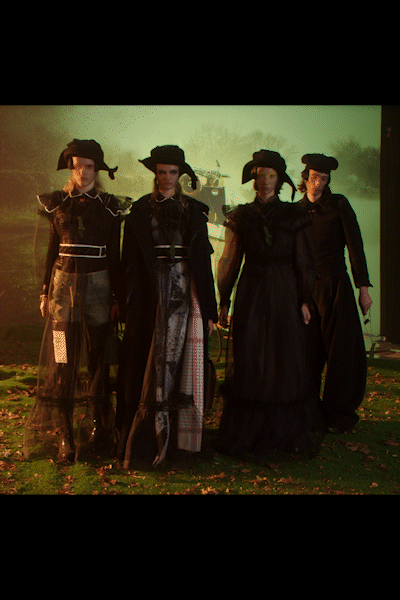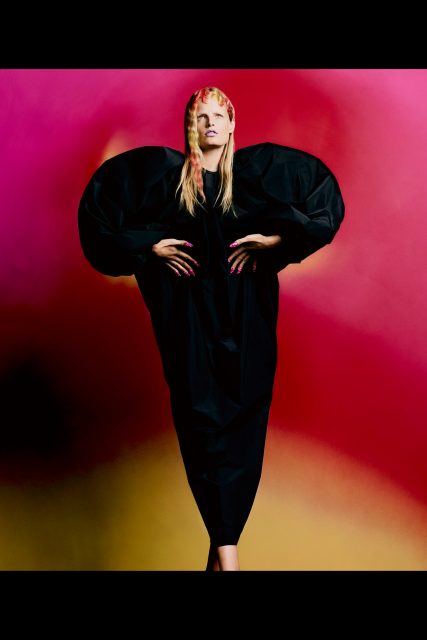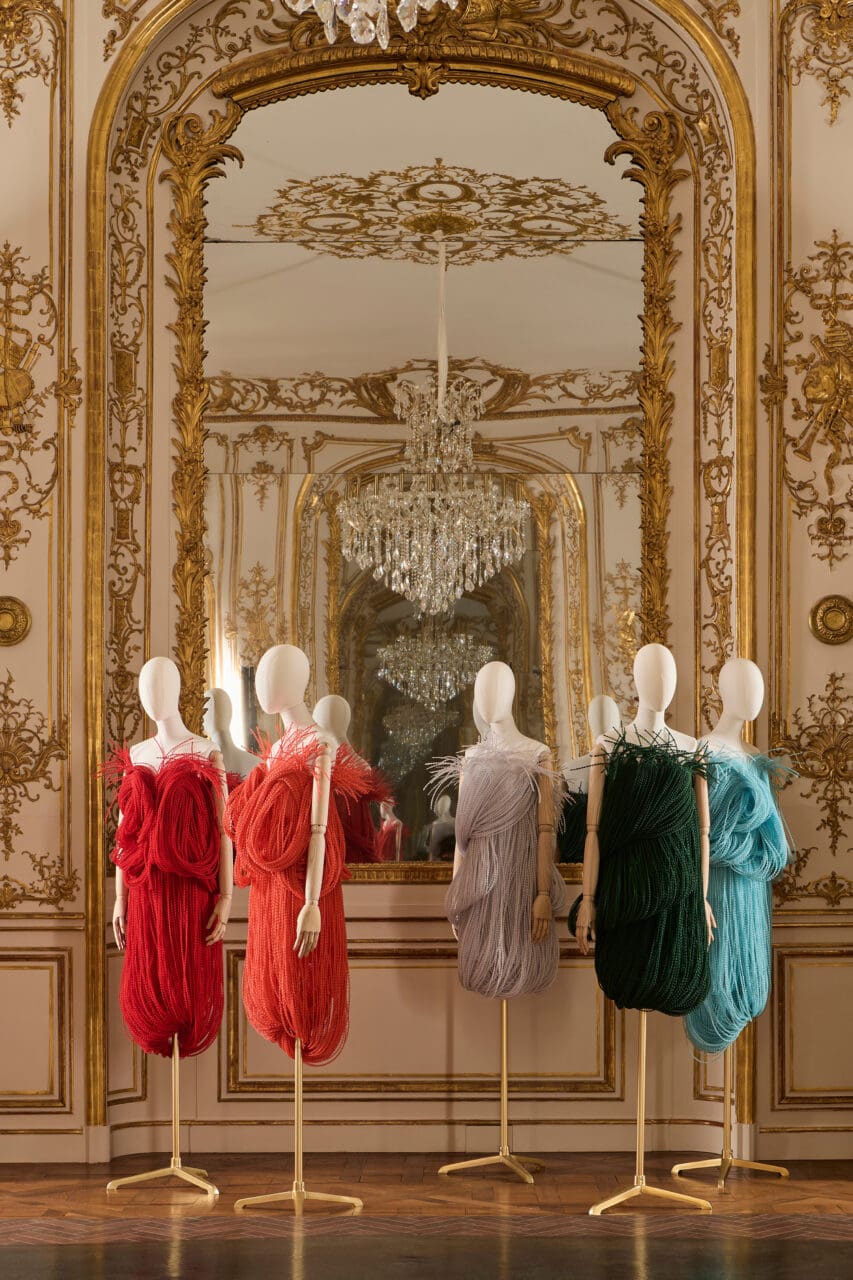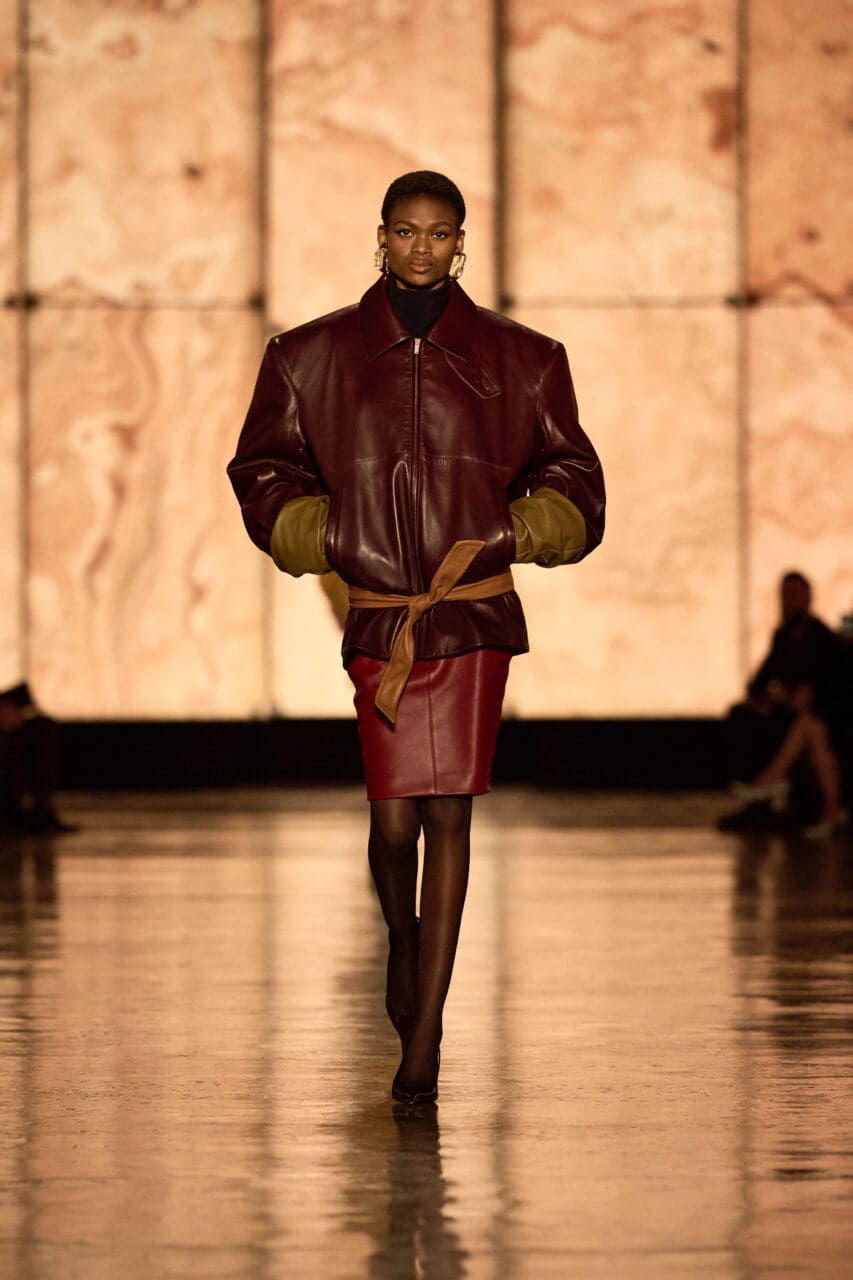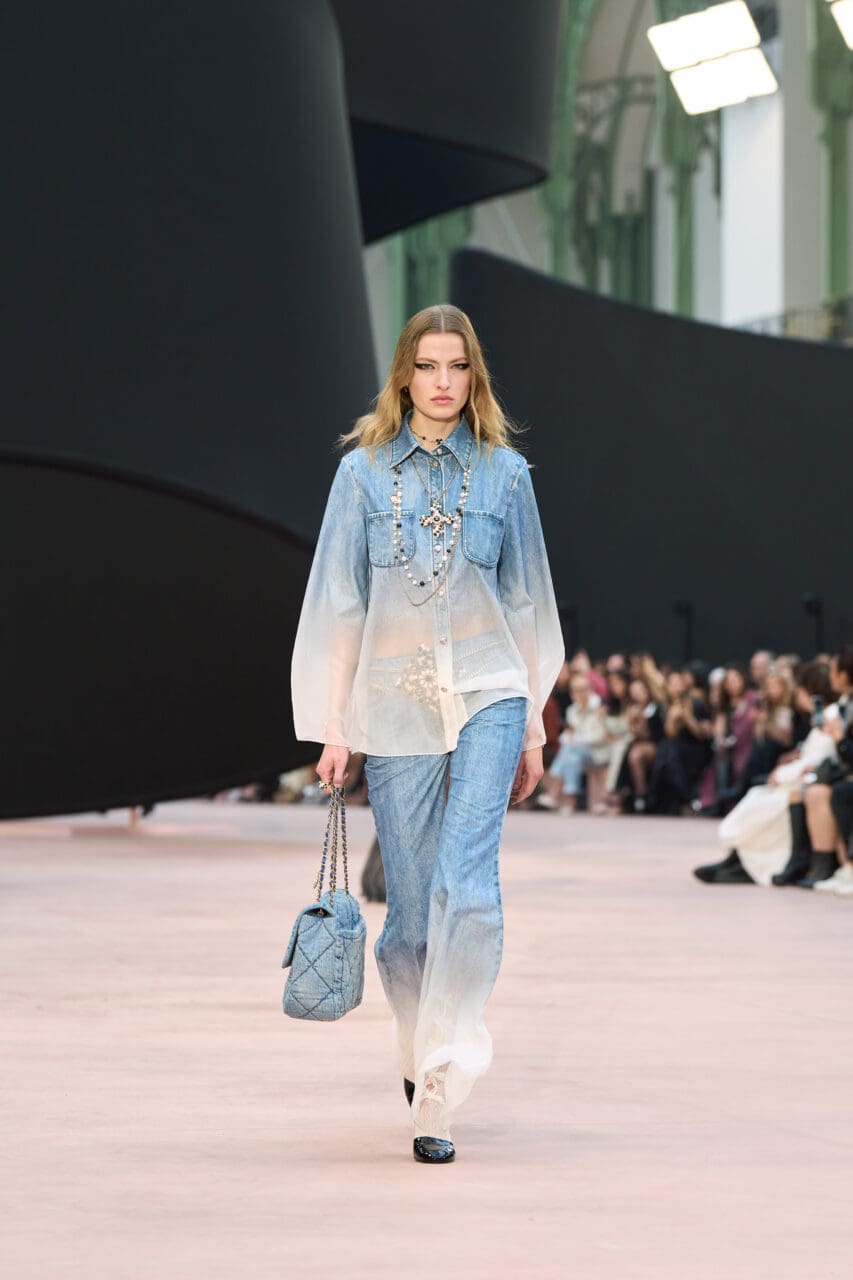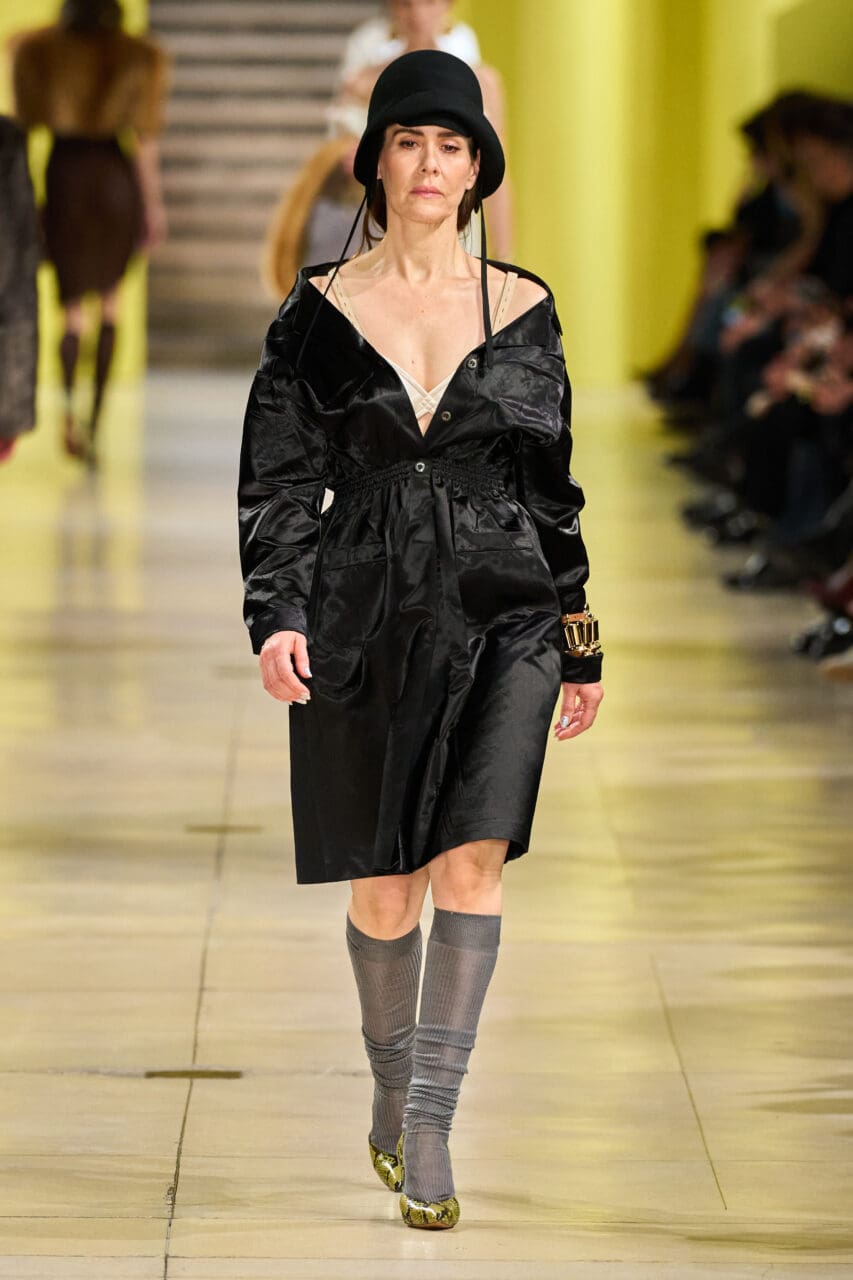“Revelers of the night,” John Galliano whispers under the screeching electric guitar of the film’s soundtrack, his delivery as tantalizing as the cinematic imagery unfolding before our eyes. We are in the white-painted converted convent (and one-time nightclub) of Maison Margiela on Rue Saint-Maur, sitting on two bianchetto salon chairs for a screening of his ready-to-wear film. His newest vision is a slickly beguiling follow-up to July’s haute couture spectacular, A Folk Horror Tale, directed—like its prequel—by Olivier Dahan, who helmed Marion Cotillard’s La Vie en Rose and Nicole Kidman’s Grace of Monaco.
With a rock‘n’roll score on full blast, it’s a different experience to the haunting celluloid poetry of his last film. Seditious and seductive, it snaps you out of the time-traveling universe he created this summer, and transports you into a decidedly disruptive disposition. Quite literally, the camera extracts from the frames of the fantasy to reveal the set. If the haute couture film was full-on illusion, this one goes behind the scenes, only to infuse that scenario with more make-believe on a very meta level.
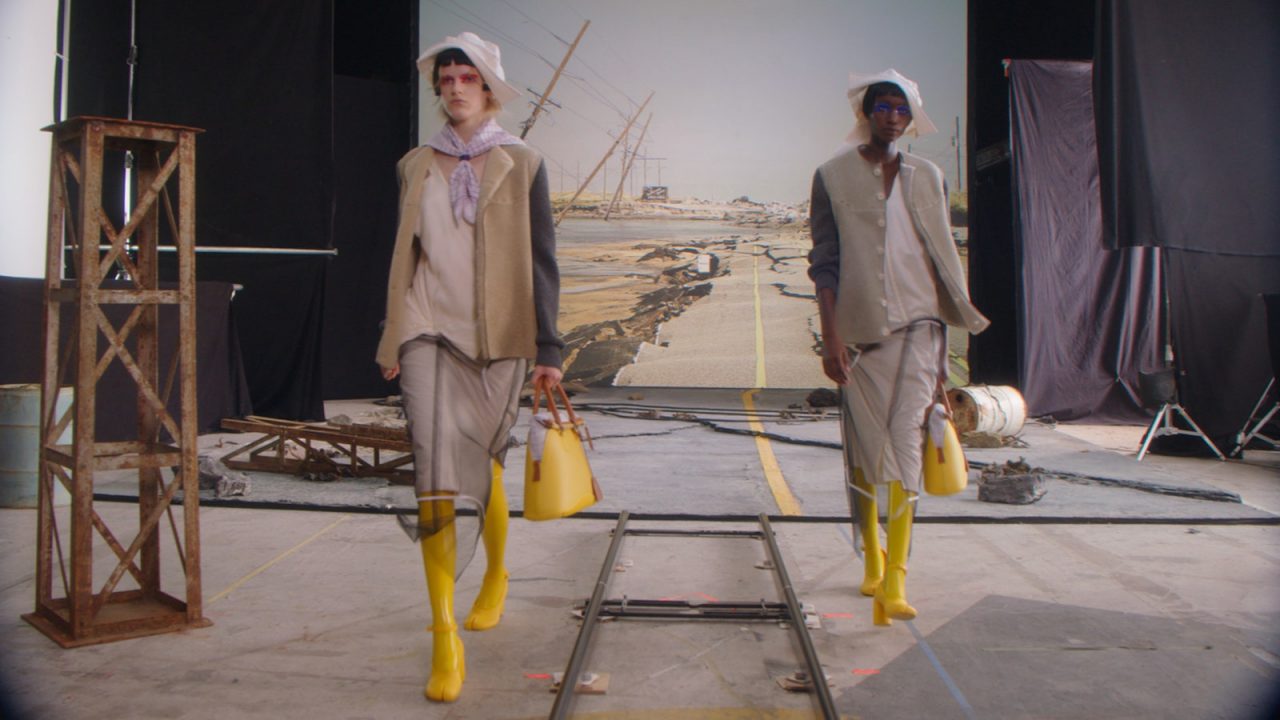
The designer has chosen to unveil the collection via the medium of film again.
Photo: Courtesy of Maison Margiela
Galliano explains it best: “The artisanal film was shot in a studio with a 360 LED screen. Here, in the co-ed film, we thought it fun to actually reveal the backstage element of it, so there’s an authenticity. We suspend belief, if you like.” “Artisanal” is Maison Margiela’s term for haute couture, while “co-ed” signifies the ready-to-wear collection. In the pyramidal structure that defines Galliano’s creative process—where he invents techniques for haute couture and filters them into ready-to-wear—these nuances are key. It’s the very notion that underpins the dialogue between his last film and the new one.
A BTS shot from the Maison Margiela SS22 film.
Photo: Courtesy of Maison Margiela
If haute couture represents the hand—the elemental purity of dressmaking, with all its might and magic—ready-to-wear is the industrialization. In essence, this collection draws on the themes of July’s haute couture and translates them into a wardrobe you can buy into. In the spring/summer 2022 film, “The water isn’t water, it’s biodegradable cellophane that we can play with to evoke the idea that they’re on a raft in the water,” Galliano explains, referring to a scene where the coastal fisherman motif of the first film has been re-interpreted: industrialized. “By the way, the raft is pieces recycled from the first film. It’s suspending belief: a backstage approach where we reveal the tricks of theatre or film,” he adds.
What happens in the film is—true to Galliano’s storytelling tradition—left up to the spectator to decrypt. Throughout the pandemic, his choice of epic filmic productions have reflected on the challenges of our moment in time, from aspects of communication to the hankering for information and transparency we all felt during the crisis, and the interdependence so crucial to our collective experience. More than anything, his newest film feels like an expression of community: these post-pandemic “revelers of the night”, as he calls his protagonists, once again able to gather after the great isolation. But they are revelers with a cause.
A BTS shot from the Maison Margiela SS22 film.
Photo: Courtesy of Maison Margiela
Within the film, Galliano inserts a series of backdrops evolving from countryside mises en scène to more arresting images of environments splintered by earthquakes, his models marching through the scenery. “They’re meant to provoke a questioning,” he says, adding: “Though we’ve marched through many things, there’s still a lot going on.” Supported by the collection’s nature-centric themes of outdoor pursuits, animal motifs and what Galliano calls “a utopian youth,” it feels like a portrait of a post-pandemic youth more devoted to environmental and communal awareness than ever.
Galliano agrees that it is a generation that sees the pandemic as a lesson—a warning signal from Planet Earth – and that hasn’t forgotten what happened, tempting as a return to “normality” may be. With their carton crowns and armor-like silver rings and hand-plates worn over Fair Isle knitted gloves like DIY knights, there’s an against-all-odds heroism to the community Galliano portrays in the film.
It conveys a sense of hope above all. “It’s something that we’ve always believed in here. Community is part of our creative process, and for others looking on it’s a way of belonging to people or a brand with ethics and beliefs that are shared.”
Editor
Anders Christian Madsen